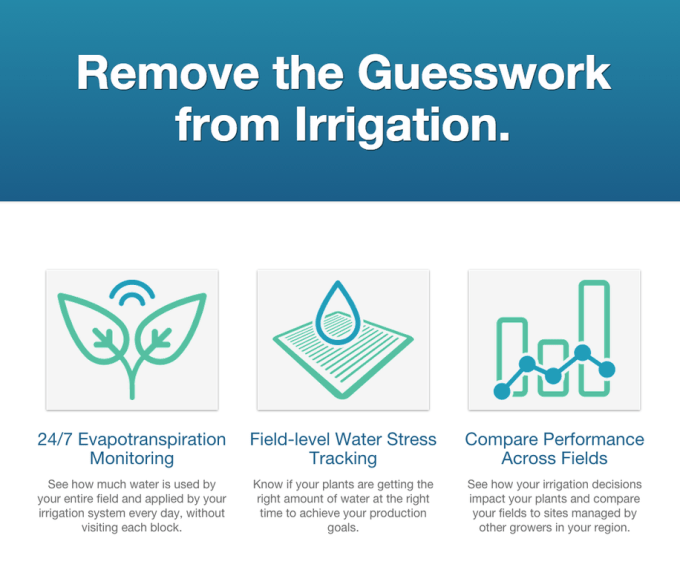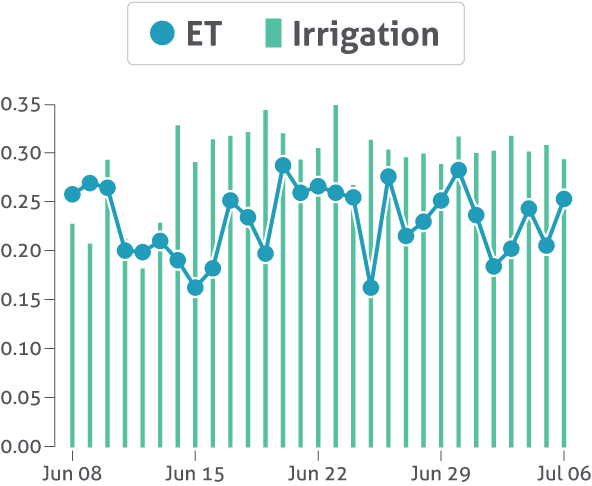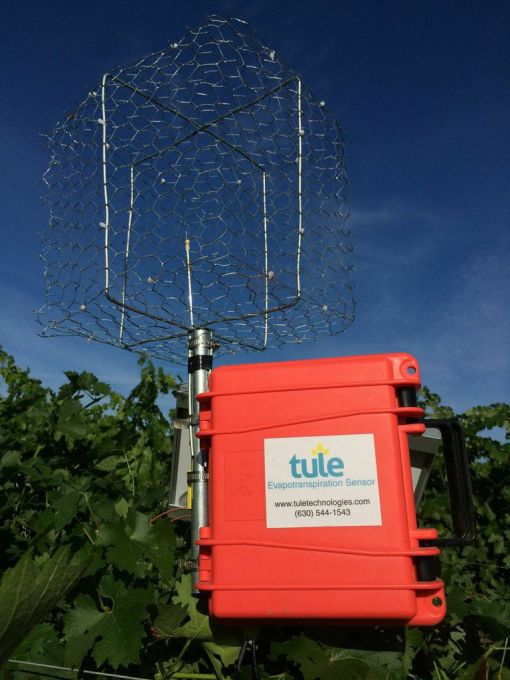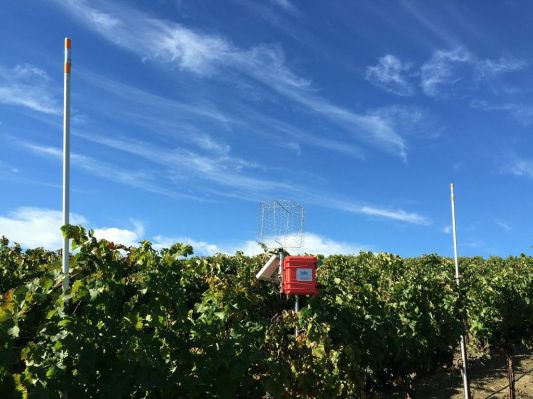Thanks to several technological improvements over the last century, life for farmers is much easier than it used to be. But managing water consumption and distribution on farms is still a fairly manual process. Farmers have traditionally hired farm hands to drive through acres of fields and manually check the health of their crops and wetness of the soil.
Y Combinator-backed Tule (pronounced too-lee) aims to simplify the process with a device that senses plant moisture from a large area of land. It works by measuring something called evapotranspiration, or the amount of moisture released by plants into the air. The sensors collect data from the evapotranspiration and then send it to the site’s servers.
Water management is becoming increasingly important to farmers. The majority of our water resources in the United States go to farm crops, with more than 90 percent of that consumption taking place in the Western states, according to the USDA.
In places like California, the need for water management is especially pressing. Almonds, avocados, strawberries and grapes all tend to need extra attention when it comes to the right balance of water in the soil, and the state is in the midst of a drought.
As a result, every drop of water counts for the farmers and their fields here. Too much or too little water can ruin thousands of acres of cropland, cause a food shortage, drive up prices for the consumer and devastate a farmer’s yearly income.
Drones have provided some modern measures to give the farmer a picture of what’s happening. But, according to atmospheric scientist and Tule co-founder Tom Shapland, they only show the farmer what they can already see.

“They show [the farmer] images of their crop. They already know that, but it doesn’t help them measure what’s going on with the soil,” says Shapland.
Many of the soil moisture sensors currently on the market only measure a few cubic inches or a specific plant.
Shapland focused on technological applications to agriculture while earning his PhD at UC Davis. He and co-founder Jeff LaBarge built Tule to provide what Shapland says is a more accurate and affordable solution for healthy crop irrigation to farmers.
The technology behind Tule has existed since the late 1800s but it was expensive to make and didn’t reach far enough for real-world applications. Shapland says systems made before his sensors came along would have cost a farmer about half a million dollars and were stuck in academia for more than a century for that reason.

The Tule sensors can be installed in under 30 minutes, measure up to 10 acres of cropland at a time and cost $1,500 per sensor.
An app is coming soon for farmers who want to check their crops on mobile. For now, farmers can log in on the Tule website to check out how their crops are doing in real-time. Users see the data from their crops, as well as a projected weather forecast for the week ahead. This helps them manually adjust water accordingly.
LaBarge and Shapland imagine someday someone might create technology that will automatically direct water resources to the right crops at the right time so the farmer doesn’t have to, but their focus is solely on water detection.
The sensors could also possibly help prepare farmers for the future of global food production. There will be an estimated 9 billion people in the world in the next 35 years. A Food and Agriculture Organization of the United Nations forecast predicts farmers will need to increase production by 60 percent to meet demands. Shapland says his sensors could increase yield by 30 percent if farmers get the irrigation just right.

Tule has a licensing agreement with UC Davis for the technology. This gives the startup some legitimacy when talking about it with local farmers, according to Shapland. Though LaBarge noted that it’s also helpful to know the local tomato influencer. “If they’re into it, you’ve got the region,” he says.
Tule recently received an undisclosed seed round of what we’re told is over a million dollars in funding from Khosla Ventures and Bloomberg Beta.
The sensors are currently available for pre-sale on the website.
